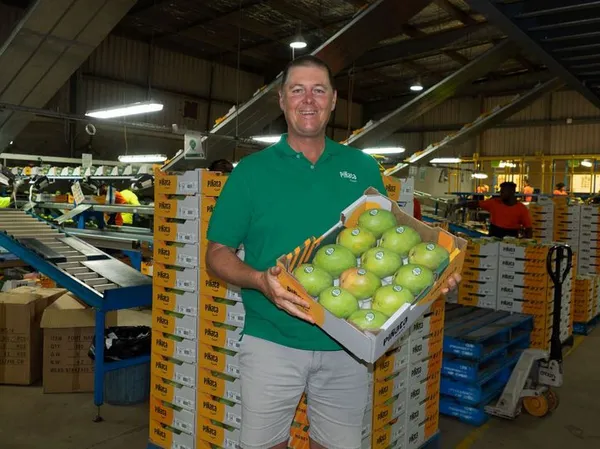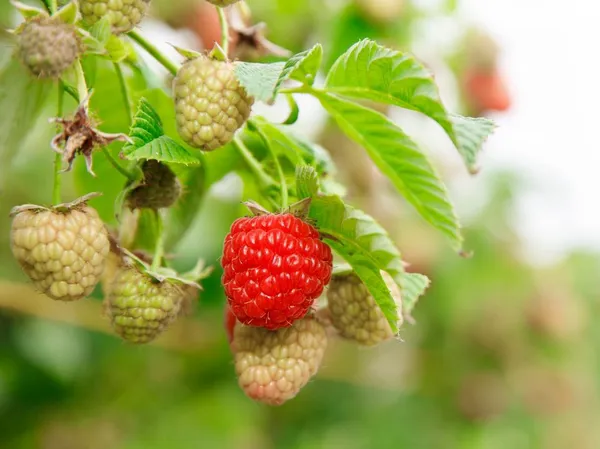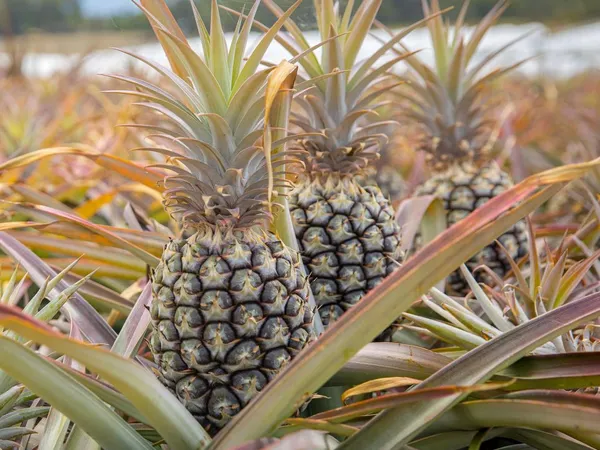Despite the challenges brought by COVID-19, it has been a year of growth and recovery for major Australian fruit producer Piñata Farms.
The Queensland-based company has added raspberries to its produce list in recent seasons, meaning it is a busy end to the year, according to Managing Director Gavin Scurr.
"Leading into Christmas, for us, it is an exciting time of year because we have mangoes, pineapples and raspberries," he said. "They're all summer favourites for Australians, those three crops. We're doing Honey Gold (mangoes) out of the Northern Territory, and more recently out of Queensland. The pineapple crop has been one of our best-performing crops in recent years, so good size and quality at this time of year. While mangoes are a bit lighter overall from an industry perspective, we had one of our better crops out that we ever had of Katherine as far as volume goes - but Darwin and Mataranka didn't quite reach the number we expected. They were all good quality and demand across all our lines have been strong from a retail perspective."

The Honey Gold mango Harvest in the Northern Territory finished last week, with pineapples in full production out of Mareeba in North Queensland.
The newest crop raspberries are close to finishing in Wamuran, north of Brisbane, but Stanthorpe in Southern Queensland and Tasmania are still in full swing.
"The Diamond Jubilee variety that we have from BerryWorld is a very good eating variety," Mr Scurr said. "It is performing well. Production of raspberries have been good; good crop, good quality and nice size with excellent flavour. They have really solid demand, and that's because they have become consistently more affordable. Price came down and now more and more people are buying raspberries more regularly. It was not surprising, as we suspected it would happen, based on what happened in Europe. More people enter the category when they were on promotion, or when they were cheap and stayed with the product even when prices went up again slightly. That's what happens when you have a good product."

Raspberry production is also expanding for Piñata Farms, with this season being the first pre-Christmas crop out of Tasmania, meaning it will be a full-season.
"From a crop perspective, we are meeting all expectations on yield, flavour and overall fruit size and quality," Mr Scurr said. "It's exciting to be part of a category that's doing really well."
It has been somewhat of a recovery season for Piñata, across its seven growing regions. Australia has endured a few years of drought, but Mr Scurr reported all farms received some rain.
It is only the company's third year growing raspberries in Tasmania and Mr Scurr says it was the wettest season they have had, while Stanthorpe as had 130 millimetres in December so far in many small downfalls. Last season, the company decided not to grow strawberries, to save water for the raspberries - it was that dry.
"Everything is green and looking nice now because of the regular rain," he said. "As a region, it is looking really nice. However, there's not a lot of water in the dams. But everything is wet and the forecast moving forward is promising and we are hopeful of our dams filling this summer before it is over. We've also had regular storms here in Wamuran, on the Sunshine Coast. We've had really good growing conditions over the past three months or so. It held us up a little bit with planting pineapples, but everything is really looking good here. Mareeba has got a few early storms, but we don't usually get much rain up there until the end of January when the wet season kicks in. It's still dry, but it's no worse than normal."

The weather was even better in the Northern Territory in the lead-up to the wet season, with some excellent storms showing promising signs for future crops.
"We have already had more rain in Katherine this wet season, than the entire wet season last year," Mr Scurr said. "So, it is an excellent start. Darwin and Mataranka have all had good rainfall, as well, to fill the water table that has been under pressure due to a failed wet season last year."
However, Mr Scurr admits that 2020 has not been without its challenges, especially on the labour front. Border restrictions enforced by the Federal Government following the COVID-19 pandemic outbreak have led to fewer backpacker visa workers in Australia, and the fresh produce industry has a severe shortage of available pickers and packers.
"The issues we have are consistent across all seven of our locations, it is not that one is worse than the other," he said. "When it first hit, it was a challenge to maintain a workforce. We got caught out on our strawberry season; we left a lot of fruit to rot in the field - four million punnets actually. We got them through to harvest, but we couldn't pick them. We just didn't have enough labour. That's when we bottomed out. But we learnt from that and have been able to keep people, even if that meant shifting them between sites and choosing jobs for them that are nice to do rather than must do. What we are doing is focusing on the crop harvesting and a lot of the crop maintenance isn't being done on time, due to not having enough labour. That's where we are really struggling. But now overall we are getting the crop off."

In the Northern Territory, harvests were assisted by 70 seasonal workers from Vanuatu, who came in to assist the industry. But the Piñata Farms managing director fears that it will get worse before it gets better.
"We see 2021 being even tougher," Mr Scurr said. "There are still 2,000 people going home each week, and very few coming in. There are less than 1,000 seasonal workers that have come into Australia this year. You don't need to be Einstein to work out that it is going to get worse."
 For more information
For more information
Gavin Scurr
Piñata Farms
Phone: +61 7 5497 4295
info@pinata.com.au
www.pinata.com.au
